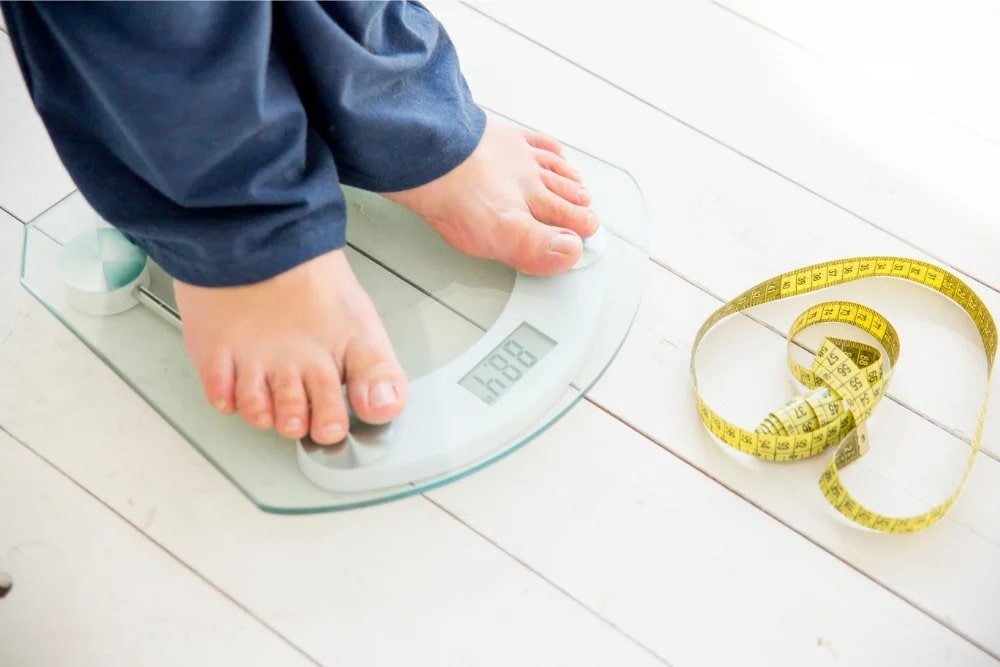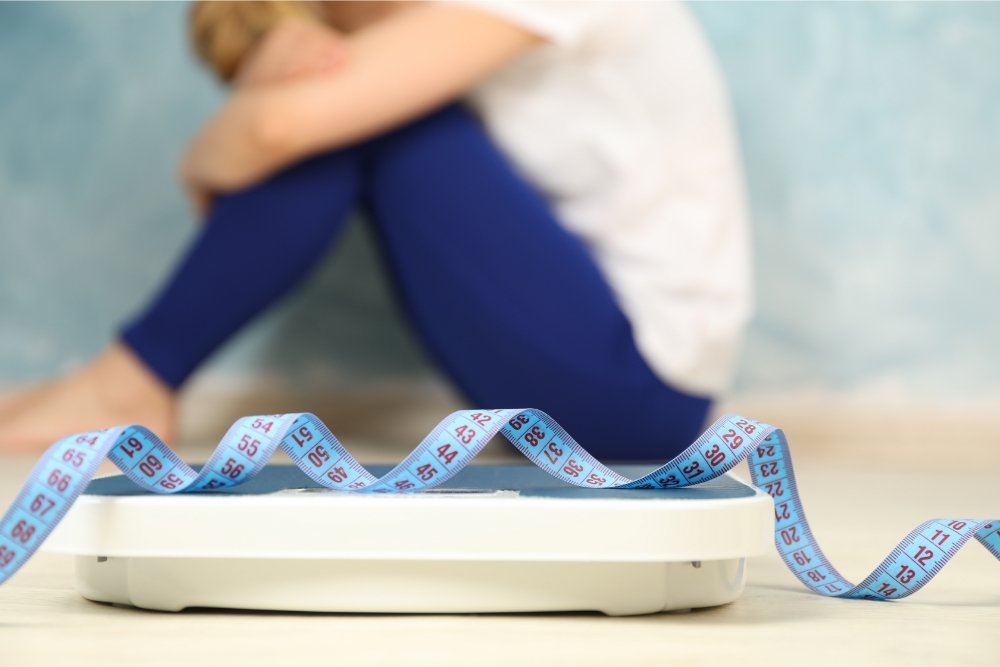Losing weight can be challenging if you have thyroid disease. It slows your metabolism, and even with a healthy diet and regular exercise, you can not lose weight. Managing thyroid weight is like treating a disorder; it has proper medications and rules you should adopt.
Many studies show that thyroid hormone leads to weight gain that diets can quickly achieve. Similarly, weight loss is regained once the excess hormone is stopped automatically. There must be some tips that a patient needs to follow to control their thyroid wisely.

The thyroid is a hormone, so its control needs complete medications, which we will discuss in detail. To manage your weight, you must prohibit some foods and have some diets in excess.
In this article, we will discuss all the recommended tips, dietetic foods, prohibited activities, and medications for controlling weight gain in the thyroid. Additionally, the article will reflect references to medications.
What Are the Reasons for Weight Gain Due to Thyroid?
There is a complex relationship between thyroid weight and metabolism. Thyroid hormones react with many of your body tissues, like the liver, muscle, and pancreas. You gain weight when the thyroid hormone is under active.
When thyroid levels are low, your body’s metabolism slows down, leading to less energy consumption even when resting. Similarly, less fat will burn and cause you to gain weight.
About 40% of people feel more tired than average. Laziness causes less physical activity and more weight gain. So, due to under active thyroid and low metabolism, it will lead you to gain weight.
Ways for Managing Weight Gain in Thyroid
Now, we are going to discuss ways to manage weight gain in the thyroid:
Adopting a new diet
It would help if you controlled calories in your daily diet, but there is no need for a very strict, low-calorie diet. If you go for a strict low-calorie diet, it will not be recommended or suitable because the body just holds calories. It would help if you created a balance between the calories you take and the calories that you burn daily.
You should set goals daily, weekly, or monthly, whatever suits you.
Goals: You will lose 1 or half pounds daily, 1-3 pounds weekly, or 5-7 pounds monthly. You can set your goals according to them. If you consume 500 or less than 500 calories daily, you can lose a pound in about a week.
Calorie Reduction
If you cut 1000 calories a day, you can lose 2 pounds of weight in a week. One of the easiest ways to cut calories is to say no to things you do not need, for example, cakes, candies, sodas, or cookies. All these are full of empty calories and will make you gain weight without any additional nutrients.
You can replace foods; it helps you replace calories from your life. An example of replacing can be that you can replace dessert with a bowl of fresh fruit with no additional sweetness, is healthy, and has few calories, too. You can replace soda with water and lemon.
Healthier Choice
You should switch foods with white flour, like crackers and white bread. You can cut calories by eating more energy-dense foods. Such foods have low calories per bite, make you feel energetic, fresh, and full faster, and make you stay longer.
For example, you should replace a pizza with a bowl of vegetable soup. Vegetable soup has less than 100 calories and is rich in water, so it will fill you up and make you feel fresh. On the other hand, a slice of pizza has about 300 calories and does not fill you up; you will want more.
Crafting a balanced diet
You should prepare a meal rich in fruits and vegetables. Fruits and vegetables have few calories and have added nutrients. You should add lean protein sources, like fish, poultry, or tofu. Also, talk to your doctor before setting up a diet sheet.
You can add selenium-rich foods like Brazil nuts, sardines, legumes, and eggs. Do not add sugar and high-carb foods to your diet; remember, sugar and high-carb foods are enemies of weight loss. If you want to keep your thyroid in check, go on minimizing sugar sources in your diet. Be honest with yourself.
Exercise
After setting up a diet, exercise is the second and most essential element in controlling weight gain in the thyroid. You should regularly exercise your body because regularly exercising will make your body a fat-burning machine. The more calories you burn out, the more you exercise.
Because working out burns lots of fat. After working out, calories are also burned in resting mode. To lose weight, you need to do at least 300 minutes of exercise a week. The exercise may be walking, riding a bike, or jogging. Playing tennis is also an exercise.
Effective exercise Management
The management of 300 minutes of exercise will be 60 minutes daily, five days a week. If you don’t have an hour for exercise, then break this hour into segments. Easily you can create segments of 10–20 minutes and do it when you have time.
You can pick an activity that you love, or that is easy for you, so it will make you stick with it. Do walk around your neighborhood and complete your walking time pleasurably. You can follow a fitness DVD or spin class in a gym, even in a local gym.
Turning Everyday Tasks into Calorie-Burning Exercises
Any effort you make helps you burn calories and will be considered exercise. Even gardening is also considered an exercise; it will help burn calories. If you mop the floor, it will also be considered an exercise. Things you do pleasurably even help you burn calories.
You should go for a daily workout because a daily exercise will help you be more energetic. It also helps you manage weight gain. An under active thyroid can slow your heart rate, so you need to consult your doctor before starting any exercise.
Additional Recommendations for Thyroid Weight Gain:

There are more recommendations for weight gain in the thyroid,
Listen to your body
You should listen to your body,
· You need to understand the signals your body is giving and adjust based on those signals.
· You should pay attention to yourself.
Food is a foundational piece of the puzzle
Food is the building block of life:
- You should cook food for yourself for the best hygiene.
- You should take care of the nutrients and calories you intake.
- Try to figure out diets.
Choose exercises that work for you.
You should choose exercise that works for you and inhibit risks:
- Intolerance in exercise can be a risk for you.
- Hyper mobility is also a risk for hypothyroidism patients.
Treat it as a lifestyle, not a diet.
You should treat it as a lifestyle, not as a diet, because it’s human nature to go against restrictions,
- Just drink plenty of water.
- You should commit to yourself for exercise.
- Commit to follow a diet.
- Be your priority.
Medications
There are some tips and meditations with or without a doctor’s recommendation, but you always need to consult a doctor before adopting any activity, diet, or exercise.
- Corsino says thyroid hormone should be taken on an empty stomach with plenty of water.
- Do not take any other meditations; you should wait 30–60 minutes after breakfast, as outlined by UCLA Health.
- You should do activities and diet to boost vitamin D levels in your body.
- Along with meditation, you need to control your stress level for normal blood pressure.
- You should avoid toxins, sleep properly, have enough iodine, and eat an anti-inflammatory diet.
- Take your meditation according to your doctor or consultant to keep your thyroid at the expected level.
- It would help if you talked to your doctor about treatment as well.
Conclusion
In this article, we have discussed many perspectives on managing thyroid weight gain. A thyroid patient can control weight gain in different ways. Diet sheets, exercise schedules, or other meditations can manage weight gain.
The diet sheet discussed above should contain anti-inflammatory foods, not sugar or high-crab foods. It would be best to diet from high-calorie foods like fast foods, pizzas, burgers, and desserts. You should focus on vegetables and fruits with no sprinkled sugar on them.
You should exercise daily, choose activities you love, and practice inconvenience. Still, the vital thing is before adopting any food diet, exercise, or fatigued workout, and you should consult your doctor and get permission because exhausted work causes a patient to have an increased breathing rate and high heartbeat, which would not be favorable for a thyroid patient. So, it is the most vital element to consult your consultant first.











Leave a Reply